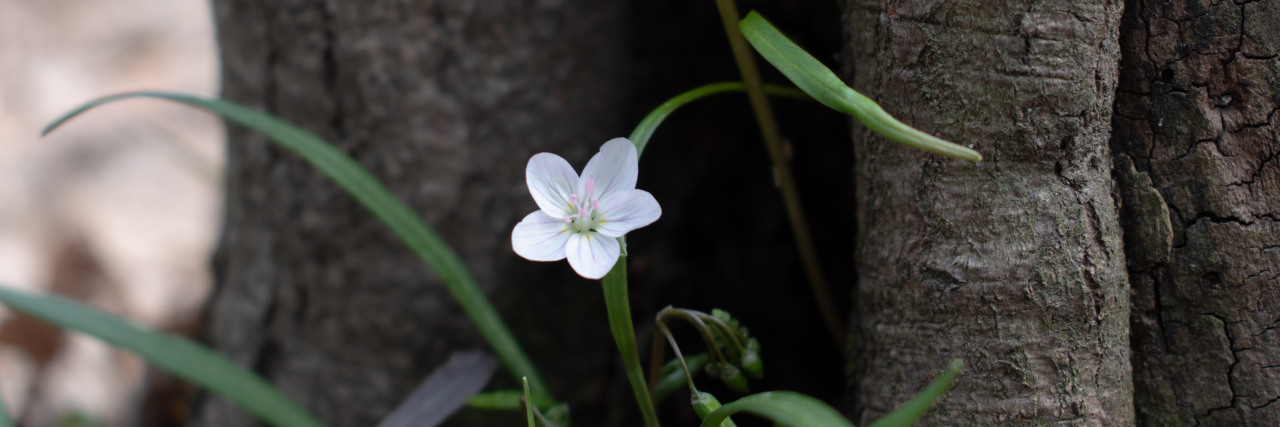During Quarantine, Be the Friend You Once Needed in Life With Chronic Illness
Editor's Note
Join The Mighty’s Coronavirus group to connect with other Mighties living through the pandemic. Read the latest updates, share helpful tips, or give and receive virtual support.
When I was in high school, I had to take almost all of my classes at home due to chronic illness. I spent a lot of time scared about my health and its unknowns, not knowing when or how my life could change next. Between my extended absence at school and my medical limitations, I very rarely saw my friends. The word “isolation” came up a lot. Now I am hearing it again on a daily basis — on TV, on social media, and in conversation. It brings me back to a past that I thought I had escaped.
To have pushed through that experience only to be thrown back into it as a senior in college has been frustrating, to say the least. This time, however, it almost feels like I have an advantage in this situation, as I am a seasoned expert on disappointment — something I’m sure many of my chronically ill peers understand. How my able-bodied peers are processing the quarantine is eerily similar to certain aspects of adapting to life with chronic illness. There are those who have lost their jobs or had to put their career on hold. There are others who have been robbed of their weddings, graduations, or other important occasions.
Anyone who has had to forfeit a part of their life is now dealing with the same areas of grief we have faced. Even the uncertainty is the same — wondering how long this stage will last, what you will do when it ends — it all sounds familiar. Although the circumstances are outside of your control, that anger and sadness of “I should be doing ___” never goes away. The hardest part is the isolation; not only are you handling these feelings, but you are handling them alone. Yet this “isolation” is different — in this situation, we are all in it together.
One of the frustrating aspects of adjusting to life with chronic illness is how easy it is to feel forgotten. In my early stages, I didn’t know anyone who was going through the same thing I was. When others don’t understand your experience, it can be easy to feel patronized or left behind. How you treat others in times of great change can make or break relationships. Watching the world grieve has reminded me just how crucial the few relationships I had were in maintaining some sense of normalcy. This is exactly what our friends need now.
Check in with your friends and family safely and regularly. Engage in a video call. Host a virtual game night. Write a letter of support or take the time to make a card to show you care. It doesn’t have to be something that takes a lot of effort — even sending the occasional text can help someone feel appreciated. Think of the kinds of gestures that got you through tough times. If you have a piece of advice or a coping mechanism that helped you through bad days, don’t be shy about sharing it!
One helpful piece of advice I received in my early days of chronic illness was to “draw it out” whenever I was having a bad day, pain or otherwise. My friend claimed it was “silly,” but it really helped her. Nowadays, I still turn to arts and crafts whenever I need a mental break. What started out as a small suggestion from a friend became a full-blown hobby. You might be surprised how much your own coping methods can benefit others, even if they seem silly to you.
There is no equating either experience as a whole, but recognizing that there is common ground is important. Don’t be afraid to share your own similar experiences. The chronic illness community understands sacrifice and loss in many ways. We know how to acknowledge change and how to face it with resilience. This is a skill that isn’t as simple as it sounds, but it’s an important one to teach. Think about what you wish you had known at the beginning. We owe it to our friends and to ourselves to lend an ear and understand each others’ experiences.
I have yet to meet someone with a chronic illness who has never felt abandoned by a friend as a result of their circumstances. This is a feeling that no one should have to face, especially right now. For their sake and for yours, be the friend that you once needed when you were first adjusting to a new way of life. Start the trend of embracing changes and making sure nobody gets left behind again.
For more on the coronavirus, check out the following stories from our community:
- 7 Things to Do If Social Distancing Is Triggering Your Depression
- If I Get COVID-19 It Might Be Ableism – Not the Virus – That Kills Me
- How America’s COVID-19 Response Is Exposing Systemic Ableism
- Why I’m Worried About Rationing If My Child With Down Syndrome Gets COVID-19
- I’m Afraid I’ll Be Told to ‘Sacrifice’ My Health for COVID-19 Patients
Photo provided by contributor.

